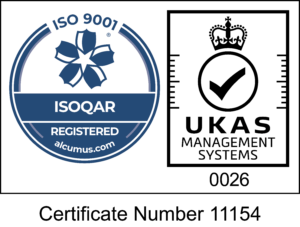OBEX's Certifications
ASTM Testing and Standards in Australia
The universal quality and safety benchmarks in various industries are set through standardization. Among the leaders in this space is the American Society for Testing and Materials (ASTM), an organization that formulates and disseminates international consensus standards. While ASTM originated in the U.S., its influence reverberates across the world, including in Australia, where its standards play a crucial role in assuring the safety, quality, and efficiency of products, systems, and services.
In Australia, a country renowned for its rigorous emphasis on quality, ASTM standards are often used in conjunction with or as a reference for Australian standards. Industries ranging from construction, mining, transportation, and even consumer goods, rely on ASTM standards to ensure the products and services meet or exceed minimum safety and performance requirements.
Integration with Australian Standards
The Australian Standards (often designated as “AS” followed by a number) are formulated by Standards Australia, the country’s primary standard-setting body. While many Australian standards are unique to the country’s conditions and requirements, there are instances where ASTM standards provide a foundational reference. This symbiotic relationship ensures that products and services in Australia benefit from both local expertise and international best practices.
Moreover, in the context of globalization and the increasing export-import trade, adhering to ASTM standards facilitates Australian businesses in ensuring their products are acceptable in international markets. This is especially relevant in industries where consistent quality is paramount.
Application Across Sectors
Within the Australian construction industry, for instance, ASTM standards are frequently referenced when testing materials like concrete, steel, and asphalt. These standards provide methodologies to ascertain properties such as tensile strength, compression, and resistance to environmental factors.
Similarly, in the realm of environmental management, ASTM guides the assessment of sites, offering standardized procedures for soil, water, and air testing. This ensures that Australian businesses and regulators can make informed decisions that protect both the environment and public health.
Additionally, in the energy sector, especially with the rise of renewable sources like solar and wind, ASTM standards dictate the testing methods for equipment durability, efficiency, and safety. This adherence ensures Australia’s commitment to sustainable and safe energy solutions.
ISO 9001 Certification: Quality Management You Can Trust
At OBEX, we are dedicated to providing our customers with the highest quality products and services, ensuring an exceptional experience with every interaction. To this end, we proudly hold the ISO 9001 certification, a testament to our unwavering commitment to quality management.
What is ISO 9001?
ISO 9001 is an internationally recognized standard for quality management systems (QMS), published by the International Organization for Standardization (ISO). This certification is granted to organizations that have demonstrated their commitment to maintaining a robust QMS, adhering to the highest global standards for quality, reliability, and customer satisfaction.
The ISO 9001 standard is based on several key quality management principles, including:
- Customer focus
- Leadership
- Involvement of people
- Process approach
- Continuous improvement
- Evidence-based decision-making
- Relationship management
By implementing these principles within our QMS, OBEX strives to ensure that every aspect of our business, from product development to customer service, is held to the highest standards of quality and efficiency.
What is the significance of ISO 9001?
ISO 9001 certification is a representation of an organization’s commitment to quality management and customer satisfaction. This internationally recognized certification offers numerous benefits for both the certified organization and its customers. Some of the key aspects that highlight the significance of ISO 9001 certification are as follows;
Global Recognition: ISO 9001 is an internationally recognized standard for quality management systems, which means that organizations certified to this standard are acknowledged worldwide for their commitment to quality and customer satisfaction.
Enhanced Customer Confidence: Obtaining ISO 9001 certification demonstrates to customers that an organization is dedicated to providing high-quality products and services, creating trust and confidence in the organization.
Consistent Quality: The ISO 9001 standard requires organizations to establish and maintain a robust quality management system, ensuring that products and services are consistently delivered to the highest standards, thereby increasing customer loyalty.
Continuous Improvement: ISO 9001 promotes a culture of continuous improvement, requiring organizations to regularly assess their processes, identify areas for improvement, and implement changes accordingly. This ensures that the organization stays agile and responsive to evolving customer needs and market trends.
Streamlined Processes: ISO 9001 encourages organizations to adopt a process approach, focusing on the efficiency and effectiveness of their operations. By optimizing processes, organizations can reduce waste, lower costs, and increase productivity, ultimately delivering more value to their customers.

